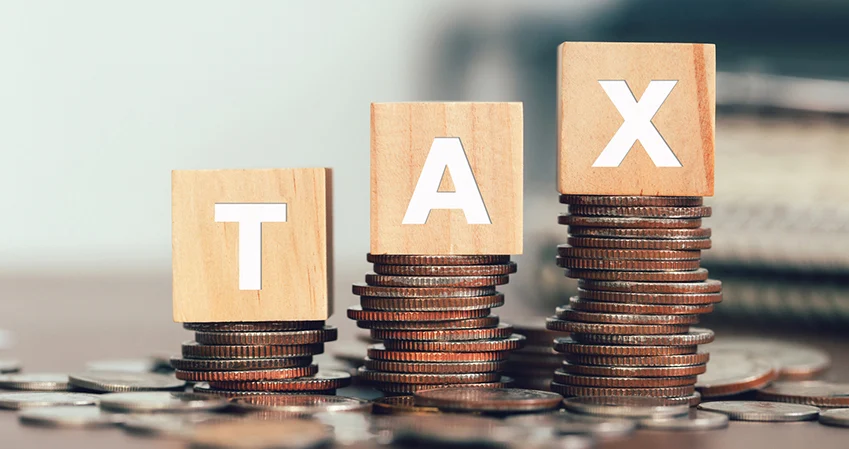Turnkey relocation to Spain from 6 weeks
We will help you to obtain a Spanish residence permit for the whole family with a minimum tax burden!
Read more
Get a free consultation
From 0 €
Tax burden per month
From 6 weeks
Term for obtaining a residence permit
5 years
Until permanent residence permit


How Russian Citizens Can Receive a Pension in Spain

If a Russian citizen resides permanently in Spain, they are entitled to receive a pension there. However, it’s not that simple. Spanish authorities impose specific requirements regarding work history, age, lawfulness, and more. Additionally, in order to be eligible for a pension, a person must legally reside in the country for a certain period and have documents to confirm this.
 As in other countries, Spain provides two types of pensions: employment-based and insurance-based. For the former, an individual must have worked a certain number of years with officially declared income, from which taxes are deducted. For the latter, one must simply reach retirement age.
For foreign citizens, additional requirements apply. They must reside in Spain for a certain number of years. There are no regulations specifying how much money they must have earned, so any legally employed person may be eligible. Early retirement is available for certain professions.
As in other countries, Spain provides two types of pensions: employment-based and insurance-based. For the former, an individual must have worked a certain number of years with officially declared income, from which taxes are deducted. For the latter, one must simply reach retirement age.
For foreign citizens, additional requirements apply. They must reside in Spain for a certain number of years. There are no regulations specifying how much money they must have earned, so any legally employed person may be eligible. Early retirement is available for certain professions.
 Step 1: Prepare Documents
The resident must gather the standard documentation to apply for a pension:
Step 1: Prepare Documents
The resident must gather the standard documentation to apply for a pension:
 Like other countries, Spain offers both employment-based and insurance-based pensions. The first requires a certain number of years of official work and tax contributions; the second is age-based. For foreign nationals, additional requirements apply. To qualify for a Spanish pension, a person must have lived in the country for a specific number of years. However, there is no fixed income threshold, meaning any officially working individual may be eligible. Early retirement is also available for specific professions.
Like other countries, Spain offers both employment-based and insurance-based pensions. The first requires a certain number of years of official work and tax contributions; the second is age-based. For foreign nationals, additional requirements apply. To qualify for a Spanish pension, a person must have lived in the country for a specific number of years. However, there is no fixed income threshold, meaning any officially working individual may be eligible. Early retirement is also available for specific professions.
Go back to the blog
Main Advantages of Receiving a Pension in Spain
- Stable Payments: Pensioners are highly respected in Spain, so payments are never delayed. This applies even to small towns and rural areas. Moreover, the amount of pension payments in Spain is higher than in many other countries—even at the minimum level.
- Access to Healthcare: Spain’s healthcare system is considered one of the best in Europe. Pensioners have access to all medical services. If a treatment isn’t available in Spain, residents can easily travel to another EU country for care.
- Indexation: Pensions are adjusted annually based on inflation rates, helping retirees maintain their purchasing power over time.
- Benefits: Spain offers additional benefits to pensioners, including discounts on utility bills, public transportation, healthcare, and more. They also have access to social assistance programs like subsidized stays at health resorts.
- Freedom to Travel: As a member of the European Union, Spain allows its citizens—and legal residents—to move freely between EU countries without needing special permits.
Conditions and Requirements for Receiving a Pension
 As in other countries, Spain provides two types of pensions: employment-based and insurance-based. For the former, an individual must have worked a certain number of years with officially declared income, from which taxes are deducted. For the latter, one must simply reach retirement age.
For foreign citizens, additional requirements apply. They must reside in Spain for a certain number of years. There are no regulations specifying how much money they must have earned, so any legally employed person may be eligible. Early retirement is available for certain professions.
As in other countries, Spain provides two types of pensions: employment-based and insurance-based. For the former, an individual must have worked a certain number of years with officially declared income, from which taxes are deducted. For the latter, one must simply reach retirement age.
For foreign citizens, additional requirements apply. They must reside in Spain for a certain number of years. There are no regulations specifying how much money they must have earned, so any legally employed person may be eligible. Early retirement is available for certain professions.
Retirement Age and Work History
The system is straightforward. To receive a Russian pension while living in Spain, a person must have at least 15 years of official work experience. The required retirement age currently differs by gender: 58 for women and 63 for men. These thresholds are expected to rise to 60 and 65 respectively by 2028, as part of ongoing pension reforms. As long as a person retains Russian citizenship, they continue to receive a pension from the Russian government. However, if they fully legalize their status in Spain—by becoming a Spanish citizen and renouncing Russian citizenship—the pension will be paid from the Spanish system. If a Russian citizen living permanently in Spain reaches the retirement age, they can apply to the Russian Pension Fund. After approval, they can arrange to have the payments sent to a Spanish bank account. This will continue as long as they maintain Russian citizenship.Spanish Residence Permit or Citizenship
A residence permit, NIE (Foreigners’ Identification Number), or Spanish passport is required for anyone planning to reside long-term in Spain.How to Apply for a Russian Pension to Be Received in Spain
 Step 1: Prepare Documents
The resident must gather the standard documentation to apply for a pension:
Step 1: Prepare Documents
The resident must gather the standard documentation to apply for a pension:
- Passport (confirming Russian citizenship)
- SNILS (insurance number)
- Employment record book (to confirm work history)
Taxation
Russian pensions must be declared in Spain under general rules. They are treated like any other income and are therefore subject to tax. The tax rate depends on the total annual income. For example, someone receiving up to €3,000 per year will pay 0.46% in taxes. According to current international agreements, only one of the two countries (Russia or Spain) can tax the pension income.Currency Exchange
Rubles are converted to euros under standard procedures, based on the exchange rate at the time of transfer and the financial institution’s policy. Since the exchange rate constantly changes, it’s not possible to provide a fixed conversion figure.Important Aspects and Tips
Regularly Confirming Your Right to Receive a Pension To continue receiving pension payments, it’s essential to regularly submit the required documents to the Russian Pension Fund. Personal information must be periodically verified; otherwise, payments may be suspended. If you're unable to complete this process remotely, you can seek help from professionals who handle such tasks on behalf of clients. Monitoring Deadlines and Legislative Changes Laws and regulations related to pensions are frequently updated. Staying informed is crucial in order to continue receiving the full pension amount without interruption. Using Alternative Pension Transfer Methods Pensions can be transferred through an authorized representative or to a third-party bank account. If difficulties arise, it’s advisable to consult professional lawyers or legal advisors for support.Examples of Successful Cases
Case 1: Transferring a Pension via an Authorized Representative Maria had been living in Spain for several years while retaining her Russian citizenship. At age 58, she applied for a Russian pension. However, she encountered problems: direct transfers from the Pension Fund to her Spanish bank account were often delayed, and the ruble-to-euro exchange rate was unfavorable. Maria decided to authorize a trusted person to receive her pension in Russia and transfer the funds to her Spanish account. This solved the delays, and the currency conversion became more beneficial. Case 2: Using Professional Consulting Services Alexander had a residence permit in Spain. When he became eligible for a Russian pension, he tried to handle the paperwork himself but struggled due to unfamiliarity with Russian and Spanish legal procedures. He then hired professional consultants who assisted with document collection, guided him through each step, and managed the entire process. As a result, Alexander now receives regular pension payments into his Spanish bank account with minimal tax deductions.Key Advantages of Receiving a Pension in Spain
- Stable Payments: Pensioners are respected in Spain, and payments are made on time—even in small towns and rural areas. Moreover, Spanish pension amounts are higher than in many other countries, even at the minimum level.
- Access to Healthcare: Spain has one of the best healthcare systems in Europe. Pensioners can access medical services easily. If necessary, they can also receive treatment in other EU countries.
- Annual Indexation: Spanish pensions are adjusted annually for inflation, helping retirees maintain their purchasing power.
- Benefits and Discounts: Pensioners receive discounts on utilities, public transportation, medical services, and more. There is also a separate allowance for social services, such as spa or rehabilitation stays.
- Freedom to Travel: As part of the European Union, Spain allows legal residents and citizens to travel across EU countries without needing additional permits.
Conditions and Requirements for Receiving a Pension
 Like other countries, Spain offers both employment-based and insurance-based pensions. The first requires a certain number of years of official work and tax contributions; the second is age-based. For foreign nationals, additional requirements apply. To qualify for a Spanish pension, a person must have lived in the country for a specific number of years. However, there is no fixed income threshold, meaning any officially working individual may be eligible. Early retirement is also available for specific professions.
Like other countries, Spain offers both employment-based and insurance-based pensions. The first requires a certain number of years of official work and tax contributions; the second is age-based. For foreign nationals, additional requirements apply. To qualify for a Spanish pension, a person must have lived in the country for a specific number of years. However, there is no fixed income threshold, meaning any officially working individual may be eligible. Early retirement is also available for specific professions.


 11/05/2025
11/05/2025  Reading time: 7 min
Reading time: 7 min 





